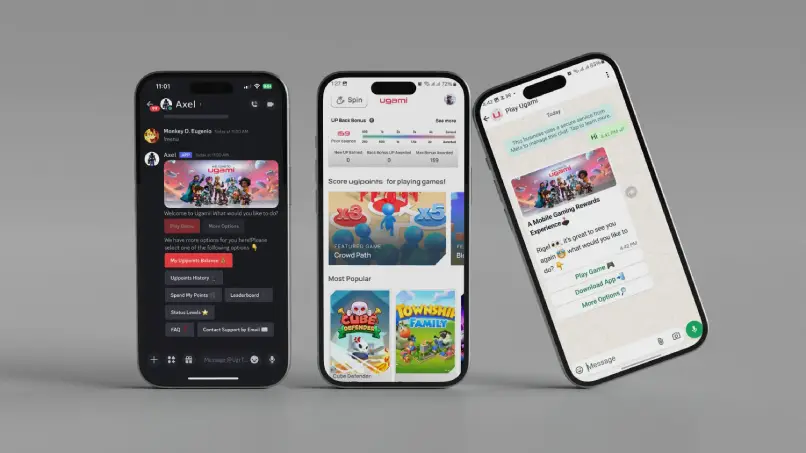Exactly How Play-to-Earn Rewards Are Changing the Gaming Experience
The advent of Play-to-Earn benefits marks a substantial development in the pc gaming landscape, moving the emphasis from simple amusement to real economic engagement. This change welcomes players to invest not just their time but additionally their funds, fostering a feeling of possession and deeper involvement within video game environments. As varied demographics accept these possibilities, new neighborhoods arise, blurring the lines in between leisure and investment. This transition increases vital questions regarding sustainability and the future of pc gaming. What implications could this have for the market and its gamers?

Evolution of Video Gaming Versions
The landscape of pc gaming has gone through a substantial transformation over the decades, advancing from traditional pay-to-play models to a lot more innovative frameworks that prioritize individual interaction and money making. Games were mostly offered as standalone items, needing ahead of time settlements for accessibility. This version, while effective in generating income, commonly minimal player communication and neighborhood structure.

In recent times, the increase of blockchain innovation has presented play-to-earn systems that basically modify video gaming dynamics. These models not just supply a platform for players to gain incentives yet likewise democratize the gaming economic situation, permitting individuals to possess in-game possessions. This development reflects a broader pattern towards community-driven experiences, where programmers and gamers collaborate in shaping the gaming landscape, inevitably redefining exactly how value is viewed in the gaming sector.
Benefits of Play-to-Earn Systems
Opening new methods for player engagement, play-to-earn systems use a series of advantages that fundamentally boost the video gaming experience. These systems encourage players by providing concrete incentives for their time and initiative, cultivating a sense of possession and financial investment in the video game. This innate motivation drives players to involve even more deeply, checking out video game mechanics and areas that they might otherwise forget.
Additionally, play-to-earn models equalize gaming by leveling the playing area. Players from different histories can profit from their abilities and creative thinking, enabling new entrants to experience financial benefits that were traditionally reserved for designers and authors. This shift encourages an extra varied gamer base, enriching the video gaming ecosystem with different point of views and experiences.
Additionally, play-to-earn systems promote community building, as gamers work together and compete within decentralized environments. This interaction cultivates social links that enhance satisfaction and retention, as players feel a sense of belonging.
Lastly, these systems can result in raised longevity for video games, as this post continual player engagement typically converts into sustained interest and investment in future iterations or growths, making sure a dynamic gaming landscape.
Financial Influence on Gamers
Play-to-earn systems not only enhance gamer interaction however also have considerable financial effects for people included. These platforms permit gamers to monetize their time and skills, changing pc gaming from a recreation into a viable revenue source. As players gain copyright or in-game possessions that can be traded or offered in real-world markets, they acquire financial motivations that can dramatically affect their personal economic situations.
The economic design promotes a new age of entrepreneurship, as gamers can buy numerous video gaming ecosystems or create methods to maximize their profits. This possibility for revenue generation draws in a Homepage varied demographic, consisting of those in regions with limited work chances - play to earn rewards. Lots of players are currently viewing click here for more gaming not just as enjoyment however as a pathway to monetary empowerment.
Nonetheless, it is important to recognize the volatility related to cryptocurrencies and the capacity for market changes to influence profits. Gamers have to navigate these threats while balancing their pc gaming and financial activities. Generally, the financial impact on players is profound, improving their relationship with gaming and opening up methods for wide range creation in a progressively electronic economic situation.
Community Building in P2E Games

Gamers in P2E atmospheres regularly create guilds or partnerships, developing networks that facilitate source sharing, strategic planning, and common assistance. These teams frequently participate in cooperative missions or competitions, further strengthening their bonds and boosting the total gaming experience. Additionally, community-driven events, such as events and celebrations, offer to join players, foster friendship, and incentivize participation.
Additionally, designers actively involve with their areas, including comments and ideas that shape game advancement. This collective approach not just encourages players but additionally makes sure that games advance abreast with gamer interests, enhancing contentment and long-lasting interaction. Inevitably, area building in P2E games is not merely a feature; it is a foundational facet that transforms the gaming landscape into a much more inclusive and interactive setting.
Future Patterns in Gaming
The video gaming industry's advancement is poised to welcome numerous transformative fads that will redefine gamer engagement and experience. Among the most substantial trends is the assimilation of expert system (AI) to produce even more customized gaming settings. AI can evaluate gamer behavior and choices, enabling programmers to tailor experiences that reverberate deeply with individual users.
Moreover, the introduction of digital and augmented fact (VR/AR) innovations is readied to enhance immersion, using gamers the ability to engage with electronic worlds in extraordinary ways. This will not just boost gameplay but likewise foster social links, as gamers can collaborate and contend in common settings.
In addition, the increase of blockchain innovation will remain to affect the pc gaming landscape, allowing true possession of in-game properties via non-fungible symbols (NFTs) This fad will certainly empower gamers to trade and monetize their pc gaming experiences, further obscuring the lines between pc gaming and investment.
Final Thought
By integrating economic incentives into gameplay, gamers are progressively engaged, cultivating a sense of ownership and investment in digital settings. As these trends proceed to advance, the obscured lines between amusement and investment will likely redefine the future of video gaming, shaping new experiences for gamers worldwide.